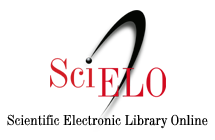Effect of abdominal muscle training on respiratory function in healthy adolescents: A preliminar study
##plugins.themes.bootstrap3.article.main##
Abstract
The respiratory muscle training has been used to improve muscle strength and optimize the mechanism of cough. The aim of this study is to evaluate the effect of abdominal muscle training on respiratory muscle strength (MIP, MEP), peak expiratory flow (PEF) and peak cough flow (PCF) in healthy adolescents. The study design was quasi-experimental, variables of respiratory function were assessed before and after the muscle training protocol in a sample of sedentary healthy adolescents without gender restriction. The sample size calculated was 15 subjects. The training protocol consisted in 8 weeks of training divided into two stages (basic and advanced training plan) twice a week. Descriptive statistics were performed, tests for normality (Shapiro Wilk), U Mann Whitney test, Pearson coefficient and t-student test were used. Results are expressed as mean and its standard deviation. It was considered significant a p value < 0,05. Seventeen subjects (8 males and 9 females) entered to the study, all subjects performed the protocol and completed it without incidents. After completing the training protocol the sit-up test performance increased 21.7% (p = 0.0001), the MIP increase 16,5 cm H2O (17.1%) (p = 0.006), MEP increased 34.9 cm H2O (50,2 %) (p = 0.0001). Moreover, PEF increased 35.3 L/min (8.3%) (p = 0.003) and PCF increased 36.6 L/min (9,1%). There was no correlation between sit-up test performance and lung function variables. PEF showed only a moderate correlation with PCF (r = 0.6; p = 0.007) and MEP (r = 0.59; p = 0.01). We conclude that, in this sample, increases in respiratory muscle strength, PEF and PCF were observed after abdominal muscle training. No association between abdominal muscle strength and respiratory function variables was found before initiating the training protocol.
##plugins.themes.bootstrap3.article.details##
Keywords.
Respiratory muscle training, peak expiratory flow, respiratory muscles, abdominal muscles, cough
Section
ORIGINAL ARTICLE
How to Cite
RODRÍGUEZ N, I., ALARCÓN S, M., GUTIERREZ G, C., HERMOSILLA R, P., CONTRERAS G, T., & BÁEZ R, C. (2014). Effect of abdominal muscle training on respiratory function in healthy adolescents: A preliminar study. Revista Chilena De Enfermedades Respiratorias, 30(4), 203–211. Retrieved from https://revchilenfermrespir.cl/index.php/RChER/article/view/315






